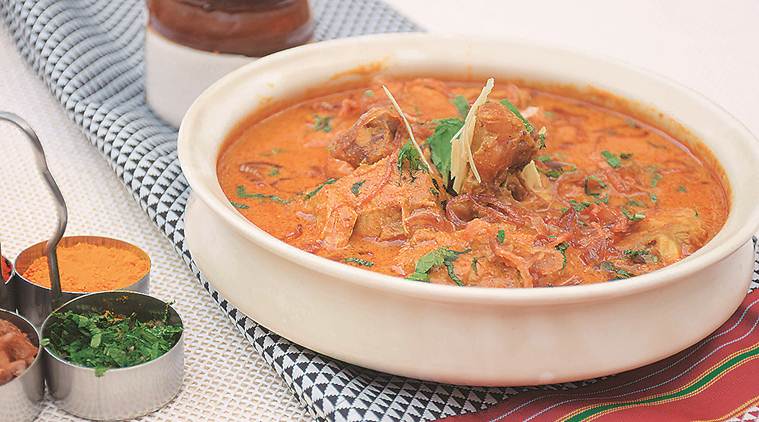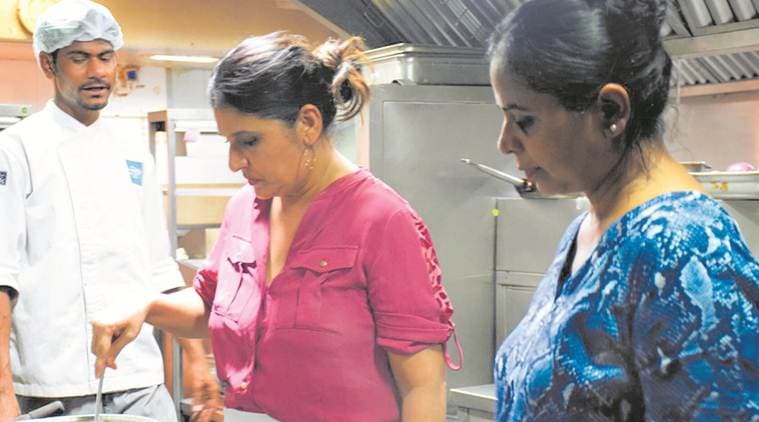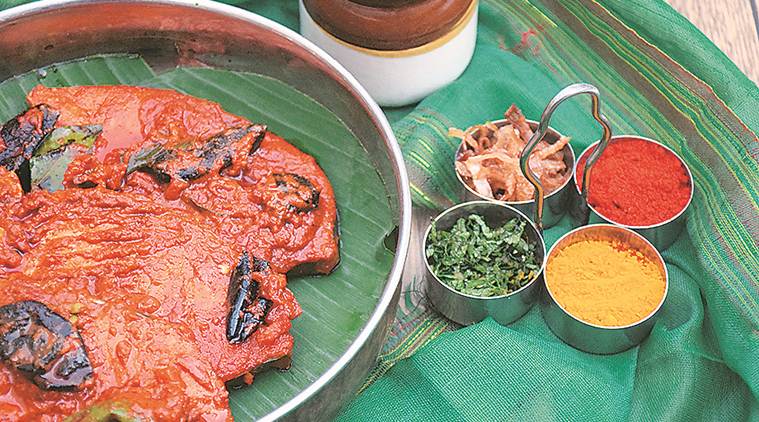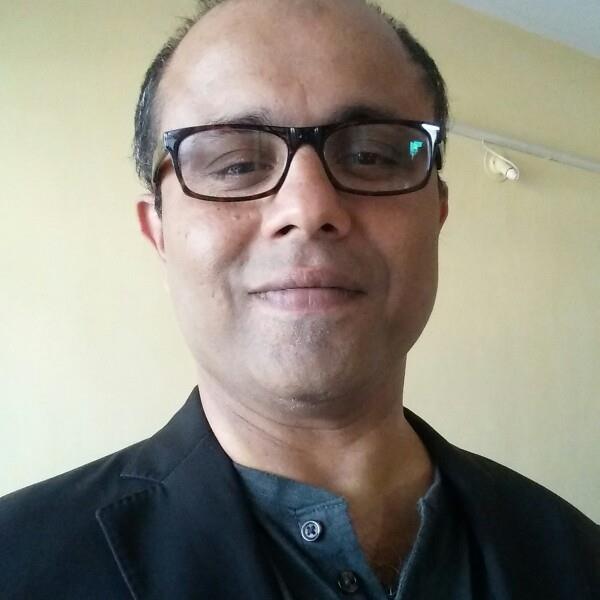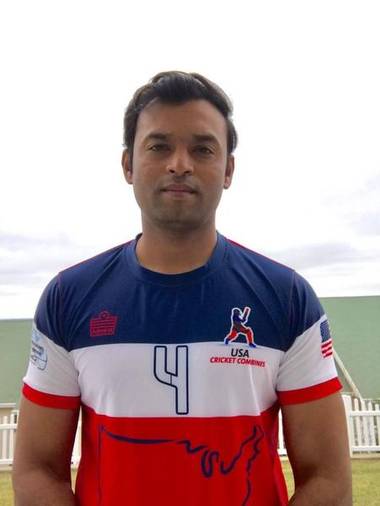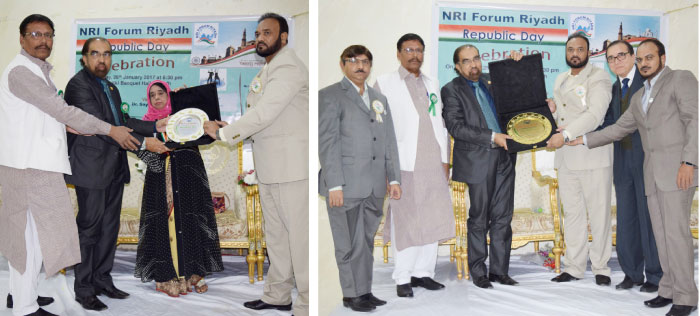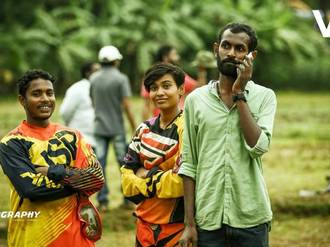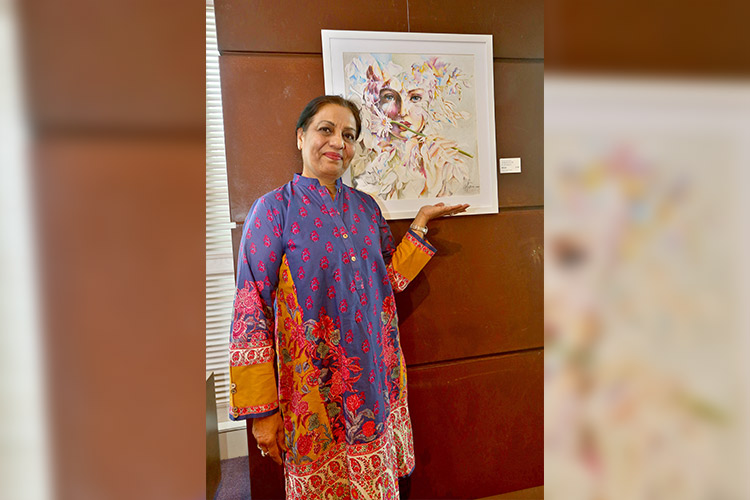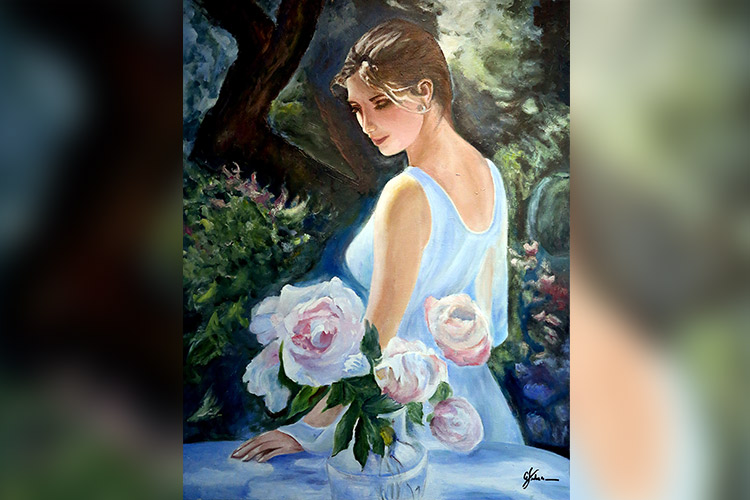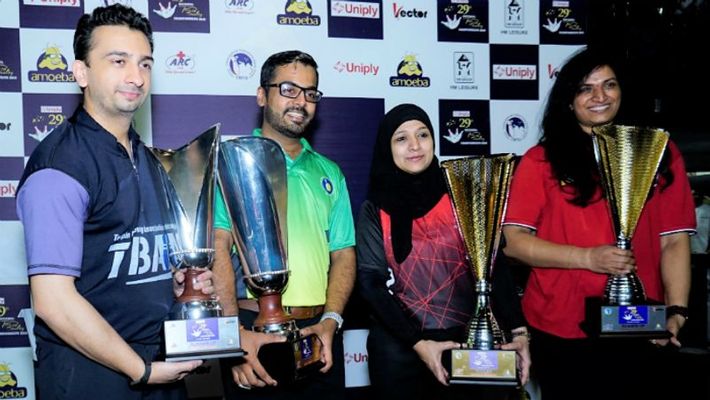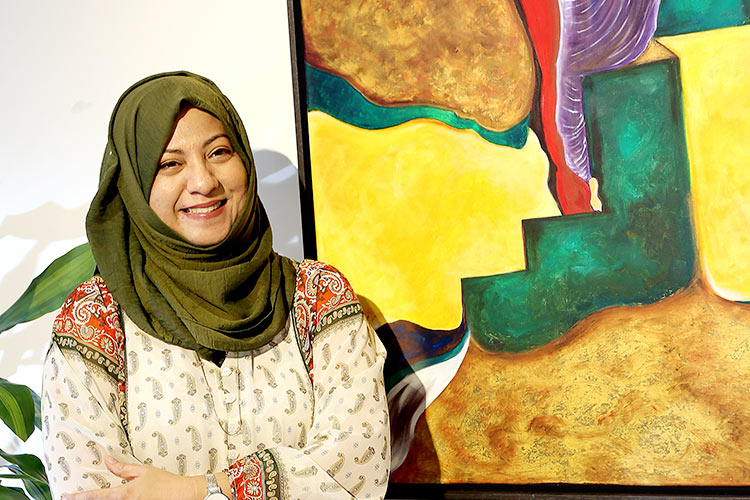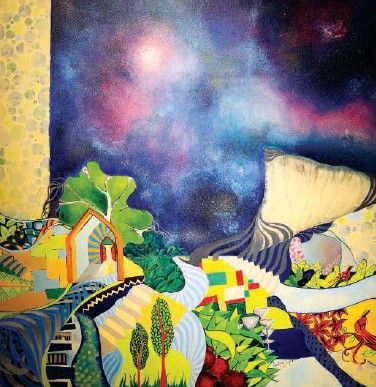Benares, UTTAR PRADESH :
Stories of kings and queens fascinate all children and we were no different.
We never grew tired of hearing Amma tell us stories about the Kashi Naresh (king of Banares) and her life in Ramnagar, in present-day Varanasi. Stories of how my seven-year-old aunt was on the lead elephant in the Ramlila celebrations, because the Kashi Naresh was studying in Mayo College; stories of her roza kushai (celebrations when a child fasts for the first time) which had a 16-year-old Bismillah Khan playing the shehnai; stories of my Nani, Begum Hameeda Khatoon attending state dinners in chiffon saris and brocade blouses with matching brocade shoes and a dash of Tangee, her favourite lipstick. We heard of Khan Bahadur Syed Ali Zamin, MBE, our teetotaller Nana raising the toast to the very senior British dignitaries who came with a glass of water! We heard of Nana ensuring that there was a constant supply of Ganga Jal for the young Kashi Naresh studying in Mayo College, since he could only use that pure water. We often heard stories from my grandmother of the jewels in the state treasury; Nana must have described the jewels to her—the keys to the treasury were kept with him and he discharged his duties with utmost integrity and honesty. Another story, and my favourite, was that Nana personally chose the piece of brocade and silk, which went from Benares as Queen Elizabeth’s wedding present.
The rulers of Benares appointed many of their dewans and other officers from the Syed family of Kajgaon, near Jaunpur… Benares State was the biggest employer of our family!
Our childhood was shaped by these stories of a land where the Ganges flowed and the Ganga Jamuni Tehzeeb, as our syncretic culture is referred to, flourished.
A land where there was a Brahmin king and a Muslim dewan!
The rulers of Benares appointed many of their dewans and other officers from the Syed family of Kajgaon, near Jaunpur. In fact, as my aunt says, back then Benares State was the biggest employer of our family!
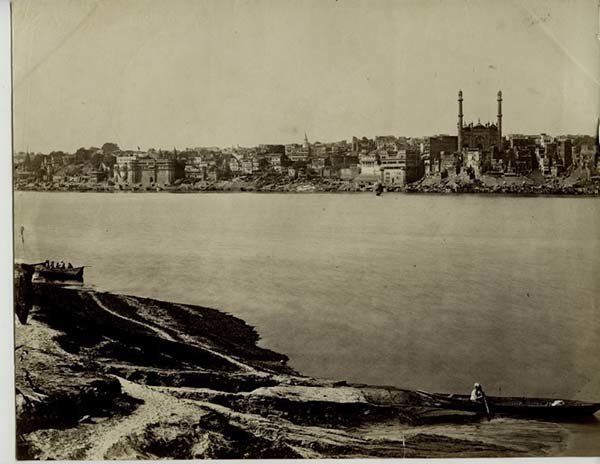
Ramnagar, which is 18km from Varanasi, was the capital of the erstwhile princely state under the British Raj. Its history dates back to the ancient Kingdom of Kashi and its Brahmin rulers are said to be the incarnation of Shiva.
Mansa Ram Singh founded the Benares estate and in 1740 his son Balwant Singh became its first Raja. It became a princely state in 1911 under the British government.
Maharaja Ishwari Prasad Narayan Singh succeeded his uncle and ruled till his death in 1889.
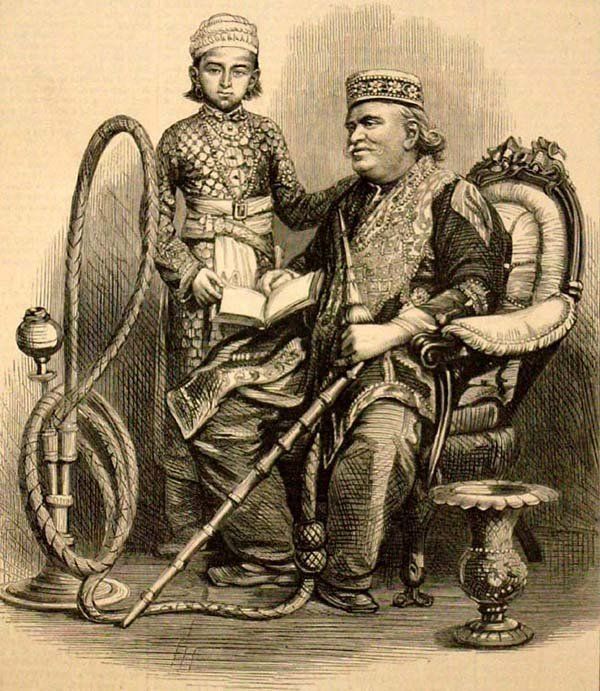
“The Maharajah of Benares,” from the Illustrated London News, 1876
A family tradition begins
The first dewan from our family was my mother’s great-great-grandfather, Maulana Syed Gulshan Ali, a qualified mujtahid from Najaf in Iraq came in Maharaja Ishwari Prasad Narayan Singh’s reign.
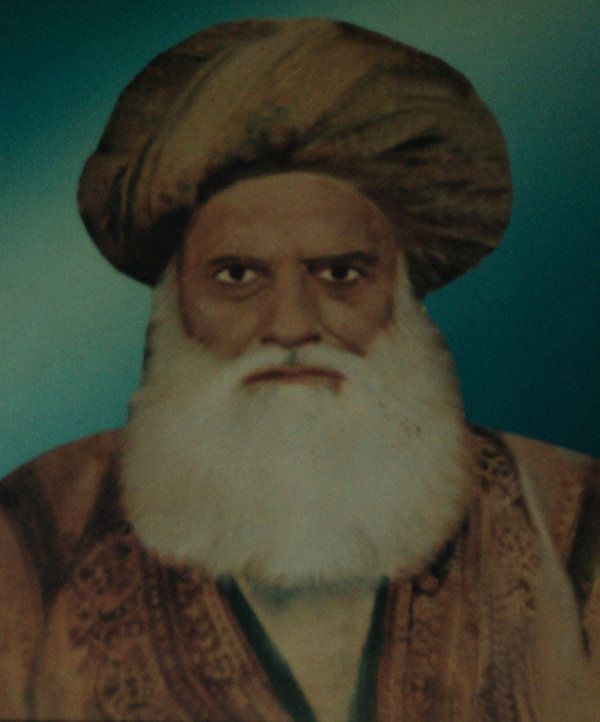
Maulana Syed Gulshan Ali
He advised and supported the king’s decision to not get involved in the 1857 Uprising and as chief minister and dewan he was instrumental in getting the estate, which had been confiscated by the British, restored to the Maharaja. According to the family lore, he had the idea of going to England to appeal to the Privy Council for the return of the confiscated land. He took three lakh rupees from the Maharaja and proceeded to the head office of the East India Company in Calcutta (now Kolkata). On the way, he met a British officer associated with Fort William in Calcutta where the head office of the East India Company was located. When the officer discovered that Maulana was a scholar he offered to help him in return for Urdu and Persian lessons. Upon finding out Maulana’s concern, he advised him that there was no need to go to England because the case could be pleaded from India. Maulana stayed in Calcutta for about a year teaching Urdu and Persian to the British officer
His detractors who had spread the rumours that Maulana sahib had decamped with the money were proved wrong when he returned and after deducting his nominal expenses handed over the remaining amount to the Maharaja.
Vignettes to cherish
My cousin Syed Naqi Hasan’s yet-to-be-published memoirs, My Nostalgic Journey, is a storehouse of information and family stories.
His uncle Khan Bahadur Syed Ahmed Hasan CIE was dewan and his grandfather, Syed Ali Sagheer (My Nana’s brother) was a collector in Gyanpur, one of the districts of Benares state. He heard these anecdotes from both our grandfathers and his uncle. Those were the days when elders sat in the courtyard surrounded by the youngsters and told them stories and anecdotes to ensure that family legacies, cultural traditions were carried on. Today’s TV, computers and smart phone have taken this away from us. Oral history will soon die a natural death.
Maharaja Ishwari Parasad Narayan Singh valued Maulana Gulshan Ali’s advice and loyalty so much that when Maulana died, he “wept bitterly and said, ‘Today my father has died.'”
He writes that Maharaja Ishwari Parasad Narayan Singh valued Maulana Gulshan Ali’s advice and loyalty so much that when Maulana died, “Maharaja Ishwari Parsad wept bitterly and said, ‘Today my father has died.'”
Later Maulana Gulshan Ali’s son Syed Ali Mohammad served as Naib Dewan.
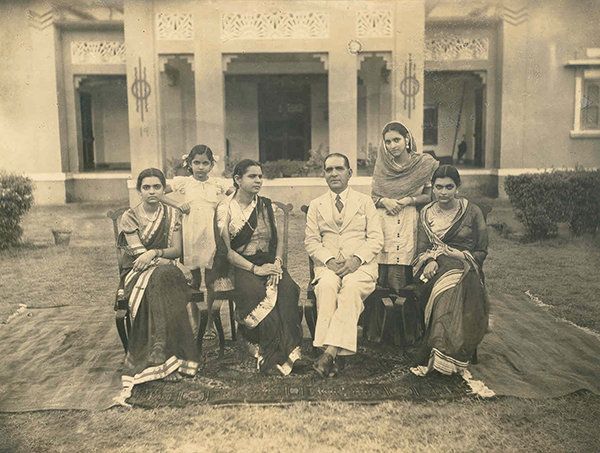
My grandparents, mother and aunts in their Ramnagar house
My aunt reminisces that amongst the many privileges granted to Maulana and his family by the Maharaja, the most important one was that until the merger of Benares state with India, two white horses were kept in the royal capital of Ramnagar at the State’s expense, and were sent to Kajgaon to be used as Zuljanah (representation of Imam Hussain’s horse) in the Muharram processions.
My elders kept our family’s oral history intact and I share some here.
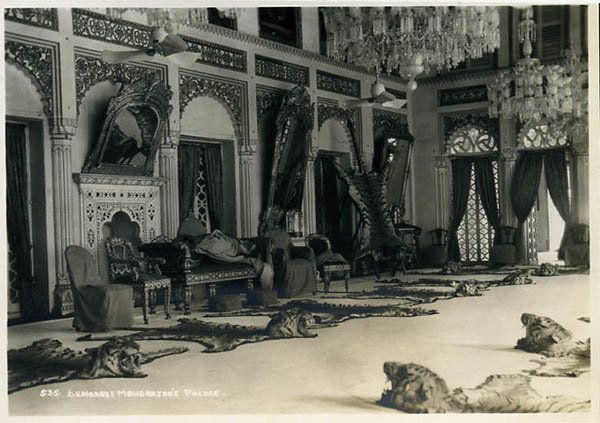
“Benares, Maharaja’s Palace,” a professional photo, 1930’s.
Maulana Syed Gulshan Ali’s extraordinary presence of mind and good judgment during the annexation of Awadh by the East India Company in 1856 is still talked about in our family. When the last Nawab of Awadh, Wajid Ali Shah, was deposed and exiled to Calcutta he halted on his way at Benares. It was customary to offer a nazrana usually in the form of gold coins to a visiting king, which the king sometimes doubled and returned to the giver. The dilemma was that not offering a nazrana meant ignoring the king. Offering gold coins was inappropriate because the king was in no position to double it. Maulana thought of presenting the king with tasbih and sajdigah made of khaak e pak or the dust of Karbala where Imam Hussain was martyred, which the Shias revere. It is priceless in terms of its symbolic value and yet not much in monetary terms, which would make giving something in return unnecessary. What could be a better nazrana for a Shia nawab!
His son Maharaja Prabhu Narayan Singh succeeded Maharaja Ishwari Prasad Narayan Singh in 1889 and was the first maharaja of the newly created princely state of Benares in 1911. He died in 1931, and was succeeded by his only son, Aditya Narayan Singh.
Maharaja Aditya Narayan Singh reigned for a very short time.
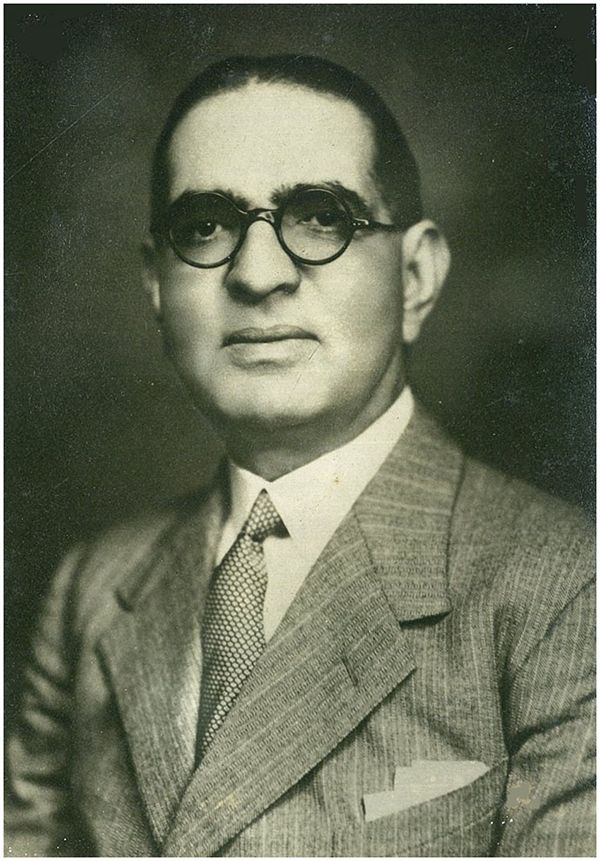
My grandfather Khan Bahadur Syed Ali Zamin
My grandfather, Khan Bahadur Syed Ali Zamin, MBE joined as Chief Secretary of the State in 1939 and the Maharaja died shortly after that.
As the Maharaja was childless he adopted a distant cousin to succeed him. Vibhuti Narayan Singh, the last Maharaja of Benares, was a minor when Maharaja Aditya Narayan Singh died.
Nana [ensured] that there was a constant supply of Ganga Jal for the young Kashi Naresh studying in Mayo College, since he could only use that pure water.
In My Nostalgic Journey, my cousin Syed Naqi Hasan writes that on his deathbed Maharaja Aditya Narayan Singh summoned my grandfather and his adopted son and placed the hand of his son in Nana’s hand and said, “Syed Sahib, I am placing my son under your protection. Please protect him as well as the throne for him.” There were many claimants to the throne. Against all odds, Nana had Vibhuti Narayan Singh perform the funeral rites as required by the Hindu religion to establish his claim to the throne.
As Maharaj Kumar Vibhuti Narayan Singh, a minor, became the maharaja under regency Council of Administration was formed and C.R. Peters Esq was appointed its President and Nana as the Chief Minister was next in line of authority. Peters had to return to England in 1944 after a sudden illness, and Nana was named to act as President of the Council of Administration.
As the President of the Benares State, Nana was responsible not only for the well being of the state but also of his young charge.
Such was the level of comfort of the Maharaja Vibhuti Narayan Singh with our families that he maintained a friendship with the younger generation and decades later in1979, he stayed in the house of my cousin whose husband S.K.R. Zaidi who was the Chief Officer of Reserve Bank of India in Kanpur, rather than a hotel where he wasn’t sure of the purity of the environment. His young son was very keen on cricket and there was a test match between India and Australia in Green Park, Kanpur.
Their children Atiya and Abid Zaidi have fond memories of his charming manners and how the Maharaja floored the servants with his courtesies.
The Maharaja came with his full entourage and was given the lower floor of their huge house, with a kitchen where he could be comfortable.
Maharaja Vibhuti Narayan Singh ascended the throne, before reaching the full legal age on 11 July, 1947, approximately four months short of his 20th birthday. His ascension was speeded up in view of India’s imminent Independence. Charles Allen and Sharada Dwivedi in their book, Lives of the Indian Princes , quote the young Maharaja Vibhuti Narayan Singh as saying that he wanted to finish his education but was told by the political advisor to the Viceroy, Conrad Corfield, “If you waste a day you may not become a Maharaja.” He goes on to add that that the people of Benares were kind to him and how my grandfather, Syed Ali Zamin, who was presiding over the meeting of the Cabinet of Ministers stepped aside and asked him to preside over the meeting so that he “could play a leading part.”
He succeeded to the throne in July 1947 after becoming an adult, a month before India’s independence. The Council of Administration was dissolved after his ascension and the position of President was abolished. Nana became the Dewan.
End of an era
Maharaja Vibuti Narayan Singh signed the Instrument of Accession to India in Oct 1947, and Benares State was merged with the United Provinces now the Indian state of Uttar Pradesh.
In 1948 my grandfather suffered a heart attack while addressing a meeting in Ramnagar, the capital of Benares State, and had to be carried home on a stretcher. He took voluntary retirement from his position as Dewan because of ill health but after helping the young Maharaja to ensure a smooth merger of the state with India.
The last Muslim Dewan of Benares state passed away on 1 November, 1955 a few days before his birthday on the 5th of November.
The Muslim Dewans of Banares
source: http://www.huffingtonpost.in / HuffPost / Home> The Blog / by Rana Safvi / October 27th, 2016


